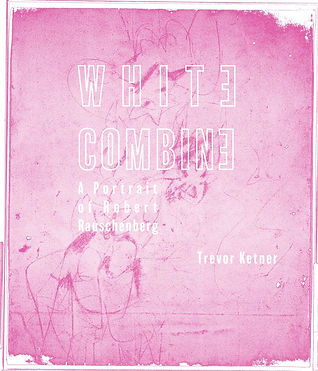My BOOKS
the wild hunt Divinations
a grimoire
Wesleyan University Press (2023)
"Sexy, queer, and contemporary, Ketner's thrilling anagrammatic sonnets reinvent and permute Shakespeare while exploring the possibilities inherent in the combinatorial game of language."
—Lillian-Yvonne Bertram, author of Travesty Generator
"Ketner's process represents a radical intersection between the traditional and the subversive, the near-mathematical and the improvisational. Artfulness is the key—instigation, invention, rejuvenation. The result offers poems that honor and uncloset Shakespeare while managing to be entirely themselves."
—Diane Seuss, author of frank: sonnets
Negative of a Photo of Fire
Seven Kitchens Press 2019
Poems from Negative of a Photo of Fire:
"Delilah" — Academy of American Poets, Poem-a-Day
“Consumption” — BOAAT
“Exodus” — Lambda Literary Poetry Spotlight
“How We Go on Coveting the Knife” — The Adroit Journal
“Aglow” — The Offing
“Amputation” — Thrush Poetry Journal
Major Arcana: Minneapolis
Winner of the 2017 Burnside Review Chapbook Contest
Selected by Diane Seuss
“It is rare to find a sequence of poems as intimate, empathic, and attentively-shaped as those you will discover in Major Arcana: Minneapolis. From the first line, this collection pulls on the dress and drops the act—’When I say of course I mean to say I’m queer as fuck’—so that by the time I finished reading I felt I had met a graspable, dimensional someone who’d graced me with the ‘subtle rippling,’ uncategorizable, living truth about themselves. The tarot’s major arcana provides a columnar foundation and a path of transformation, shadow-selves, gods and archetypes. They are echoed in characters who populate the speaker’s Minneapolis neighborhood, the ‘millennial glow of iPhones cooling the mint walls,’ like Cooper, the waiter, with two irises stitched into their arm who ‘live(s) where I do,/in the middle, between two cardinal directions,’ and the High Priestess, a woman who wears ‘a cap with a moon stitched in,’ who must remember to ‘shave /to keep her five-o-clock shadow from coming in,’ on the joyful verge of beginning her estrogen injections. God hides here too, in the closet where a black velvet dress hangs, God, ‘genderqueer, or I hope They are.’ For all of its nuances and shadows, the book journeys toward a hard-won, intelligent, intimate delight, where giving the lover their injections helps to ‘balance the body with what dwells within the body’ and where the world has so much potential for joy ‘that it dwells in us/like a light left on accidentally coming/back from a night out.’ These poems reside in the ‘beautifulnothing’; they expand beauty and empty it of its signifiers, so we’re left with our unmitigated selves, and each other.”
—Diane Seuss
[WHITE]
National Poetry Series Winner
Selected by Forrest Gander
UGA Press (US), Broken Sleep Books (UK)
'White is not blank nor is it pure,' Trevor Ketner writes in [WHITE], an obsessive, amphetaminate, formally adventurous, book-length exploration of the palimpsestic nature of art, gender, literature, and selfhood. Ketner's meditations on Rauschenberg's multi-faceted work become, as well, an examination of racial identity, queerness, and erasure.
—Forrest Gander, author of Be With and The Trace
An impressive debut, [WHITE] is a gestural, lyric analogue of a Rauschenberg combine: 'Art as context exercise;' 'Artist as:/fussiest framer.' From out of a collage of autobiographical detail and opulently performative phrasing, a trenchant essay emerges about white queer art-making, appropriation, erasure, and violence. Ketner might embrace visual art's mid-century white gay avant-garde, but their lusty retrospective glance doesn't idealize its network of lovers, collaborators, and competitors. Instead, [WHITE] explores the pleasures and limits of identification, tradition, and desire."
—Brian Teare, author of Doomstead Days
Encountering this immaculate and innovative collection of poems felt as if I were experiencing a deftly curated museum exhibit, a performance art piece, and that delicious liminal tension between prose and poems. Trevor Ketner investigates the ideology of ekphrasis by probing the work of Robert Rauschenberg to uncover what has been hidden and erased by calling out the beauty and failure of art and its interpretations. Narrative and lyric energy pulsate through these stunning poems as theater and tarot reveling in queer desire and deleted intertextuality. 'We set out to be all things and never get there,' writes Ketner, and it's in this reaching and gathering that [WHITE] truly gleams with prosody, biographical glosses, and play; the accretion is a masterpiece.
—Tiana Clark, author of I Can't Talk about the Trees without the Blood
White Combine: A Portrait of Robert RaUshcenberg
The Atlas Review Chapbook Series
September 2019

"Trevor Ketner has a poetic mind like that of the author of an ancient Chinese Buddhist sutra, who instructed that a disciple “should copy the sutras … and not hesitate to use his own skin as paper, draw his own blood for ink and his marrow for ink solvent, or split his bones for use as pens.” Ketner’s brilliant White Combine, in homage to Robert Rauschenberg, mirrors the art and biography it evokes: like Rauschenberg, Ketner is an altar-builder, miniature landscape-maker, beauty-haunted delighter in detritus, their assemblages leaving ample room for chance, for wit (retyping poems by famous poets, then erasing then with “one tap”), with deep satisfaction in process itself: erasure, violent revision, defamiliarization, rejection of assumed artistic goals, revising even the body, repurposing those elements—autobiography, gender, race, organs, even life itself—to experience the illumination that happens in the moment of destruction. “These fragments I have shored against my ruins” spoke Eliot’s Fisher King, and in Ketner’s beautiful sutra in praise of impermanence, the fragments sing."
—Patrick Donnelly



